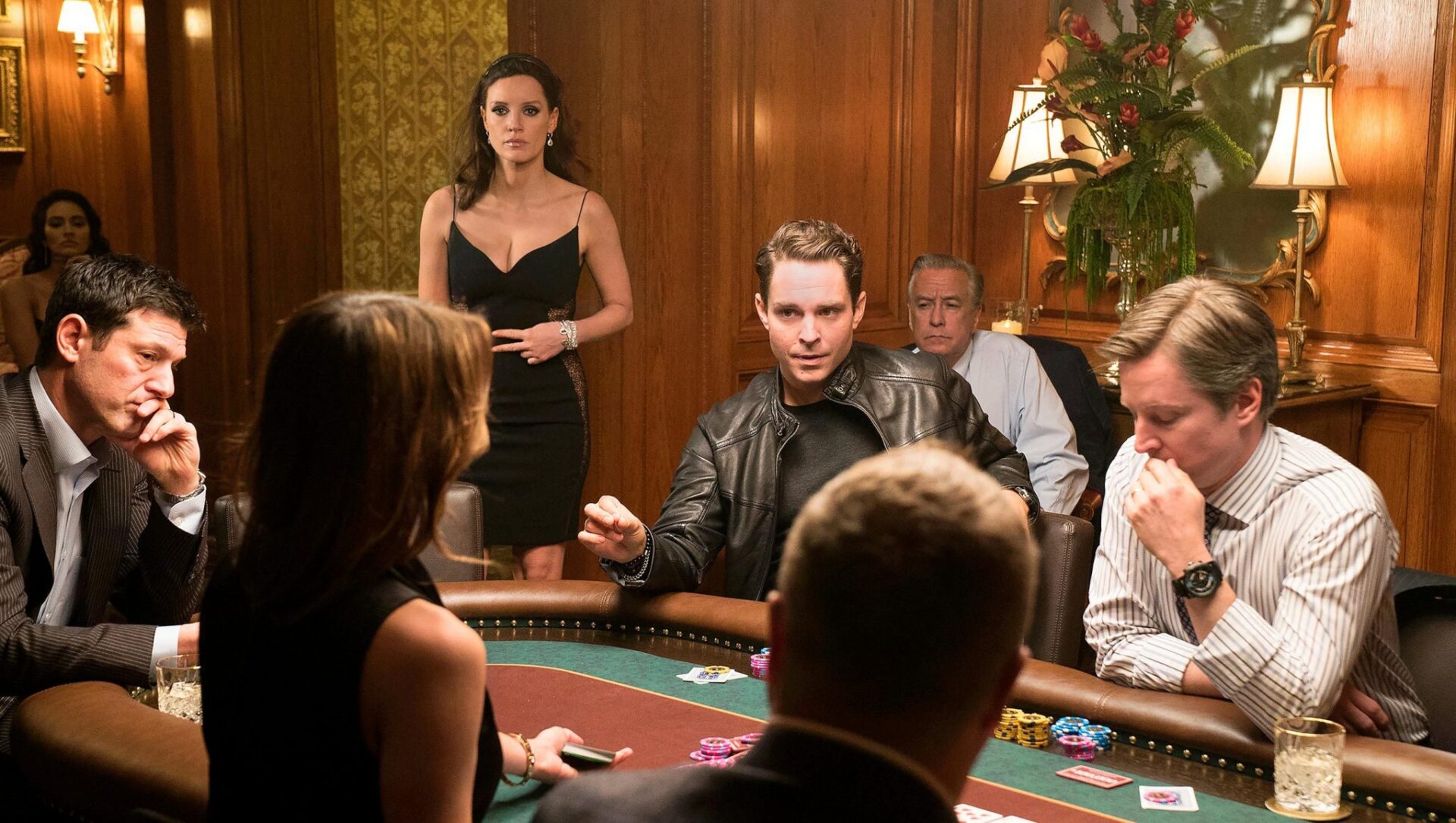It’s kind of crazy how much Aaron Sorkin’s writing vacillates between being really damn good and really damn bad. And that’s coming from someone who dutifully watched every single episode of The Newsroom. His dialogue is almost always filled with verve and wit. Whether it all amounts to something beyond that is another story. Sometimes it can all come out as grandstanding, his characters taking on the superpower to use their words as weapons, more than just verbal jabs. Molly’s Game is much of that same conceit; telling a story about a woman in man’s world loses its power when the men are verbalizing what that woman feels. And there’s no reflexivity to that fact, just a terrible conscious decision to give the main character less of an identity than her male counterparts.
This is the story of Molly Bloom (Jessica Chastain), a once Olympic hopeful who built an empire of high-stakes underground gambling before being busted by the FBI for it. It also probably doesn’t help that her illegal gambling ring is tied to the Russian mob and other unsavory folk.
One thing I thought I’d never attribute to Sorkin is boredom. I’ve always found his writing to be endlessly entertaining, even when it doesn’t amount to anything in the endgame. He’s no slouch in the director’s chair, either. It’s apparent that he understands how his words carry some kind of weight as he shoots a very talky movie with confidence. There’s no quick cutting or fast zooms like his dialogue can sometimes bring on. He’s a big believer that the one shot-two shot way of shooting dialogue is what’ll work, and it does. Even the crosscutting between Molly’s early skiing efforts and her life as the head of a gambling ring don’t feel forced; they can sometimes feel exhilarating. But those tools can’t sustain a 140-minute runtime, which feels like it goes on forever with no clear sight on a conclusion. Then that conclusion comes and reinforces my worst fear: that Molly’s distrust in everyone but herself is because of some bad parenting.
There’s pleasure to be gleamed from Chastain’s subtle performance. When Sorkin is calling upon her to move quick, she does so with grace. When he wants her to move slow, Chastain is exacting. The emotional thrust of Molly’s Game relies on Chastain to sell Molly Bloom as she sells the ruse that she’s a confident businesswoman in complete and confident control of her business, and Chastain does exactly that. I’m still convinced that given the chance to go full camp, Chastain would excel. Alas, Molly’s Game is too dunderheaded for that, too safe to break from its conventional roots and actually say something.
Like with most of Sorkin’s work, the performances here are incredibly strong. The attorney forced to represent Molly can be a really tired role, especially as he immediately notices that Molly isn’t all that she seems, but Idris Elba has the power of an interrogator and this immense empathy in his acting, and that shines here. The real stunner of a performance comes from Bill Camp’s gambling addict, Harlan Eustice. His downward spiral when someone keeps bluffing him is thrilling and becomes a movie with a movie. How Molly will treat the situation sets up big dramatic heft for her, but she can’t help but feel for this guy who looks emphatically blue collar. Camp is a magician at making the common man’s plight fully realized, much more than Sorkin is willing to explore.
Kevin Costner, on the other hand, gets saddled with being the bad dad. Molly’s many insecurities are drawn from her relationship with her father, who also was her rough and tough skiing trainer. Short story short: He cheated on Molly’s mother and pushed his daughter to the brink, and he really wants to atone for that. Unfortunately, that same atonement is meant to be a big revelation for the audience. We’re supposed to really understand Molly after their climactic conversation on a park bench, but it all comes out false. Molly is a self-made woman who is much more complicated than a bad parenting revelation in Act Three. If the revelation was to be more true, Sorkin would’ve shown over the course of the film how Costner’s character’s misdeeds informed the Molly we see today. Instead, we get a forced conclusion that cracks open all of Molly’s Game, exposing that its not the feminist scripture it purports to be.
Just because you put a female character at the front and center of your film doesn’t mean you aren’t being sexist. You can see the fakeness in the male characters, always showing power over Molly despite her best efforts. But of course, Sorkin doesn’t believe that to be true, so he carries on with his “men talking in rooms” aesthetic with nary a qualm of how it’ll speak to the female protagonist he’s created. That’s a shame too, because Chastain is one of the best people working today that could carry that feminist narrative.













